In a world where businesses are constantly hunting for the next big thing, enterprise blockchain technology is the shiny new toy that’s caught everyone’s eye. Imagine a digital ledger that’s as secure as Fort Knox and as transparent as your grandma’s favorite glass jar. It’s not just a buzzword; it’s a game-changer that’s reshaping how companies operate, collaborate, and innovate.
Table of Contents
ToggleOverview of Enterprise Blockchain Technology
Enterprise blockchain technology represents a significant evolution in how organizations handle data and manage transactions. This technology provides a secure, transparent, and decentralized platform, reducing reliance on traditional intermediaries. Many industries, including finance, supply chain, and healthcare, adopt blockchain solutions due to their trust-enhancing capabilities.
Businesses leverage enterprise blockchain to streamline operations, foster collaboration, and promote innovation. Increased data integrity and immutability minimize fraud risk, enabling companies to maintain accurate records. As a result, organizations experience improved efficiency and reduced costs, enhancing their competitive edge.
Integration of smart contracts simplifies complex agreements by automating execution once predetermined conditions are met. Customizable frameworks enable businesses to tailor their blockchain implementations to meet specific operational needs. This flexibility supports diverse use cases, from tracking assets to ensuring regulatory compliance.
Adopting enterprise blockchain aligns with industry trends toward digital transformation and data-driven decision-making. The scalability of blockchain networks allows organizations to grow without sacrificing performance. Innovations in consensus mechanisms enhance transaction speed and security, making enterprise solutions viable for large-scale applications.
Enterprise blockchain technology offers transformative potential for businesses by enhancing security, transparency, and operational efficiency.
Key Features of Enterprise Blockchain

Enterprise blockchain technology features distinct attributes that enhance business operations. This section covers security, privacy mechanisms, and scalability solutions.
Security and Privacy Mechanisms
Security forms the backbone of enterprise blockchain. Use of encryption methods ensures data integrity and confidentiality. With consensus algorithms, transactions receive validation before inclusion, reducing fraud risk. Privacy mechanisms such as permissioned access control allow only authorized users to view sensitive information. Blockchain’s immutable nature prevents unauthorized alterations, fostering trust among participants. Businesses across industries, particularly finance and healthcare, prioritize these security features to safeguard critical data.
Scalability Solutions
Scalability addresses the need for handling increased transaction volumes. Layered architectures enable enterprises to build additional protocols without disrupting existing operations. Solutions like sharding split data across separate partitions, improving response times. Blockchain networks utilize ordering services to manage transaction throughput, enhancing processing efficiency. This flexibility supports extensive user bases without compromising performance. Enterprises focusing on growth leverage these scalability solutions to maintain operational efficiency while accommodating demand increases.
Use Cases for Enterprise Blockchain
Enterprise blockchain technology presents various applications across numerous industries. Its capabilities enhance efficiency, transparency, and security.
Supply Chain Management
Supply chain management benefits significantly from enterprise blockchain. Enhanced traceability of products occurs through immutable records, allowing stakeholders to track items from origin to destination. Companies can verify authenticity using tamper-proof documentation, reducing the risk of counterfeit goods. Improved collaboration among supply chain partners results as all parties access a shared ledger, fostering transparency and trust. Companies like Walmart use blockchain to monitor food products, increasing safety and accountability. Enhanced efficiency leads to quicker issue resolutions, minimizing delays and boosting customer satisfaction.
Financial Services
In financial services, enterprise blockchain streamlines transactions and reduces costs. Real-time data sharing enhances accuracy, minimizing errors in transaction processing. Financial institutions adopt smart contracts to automate complex agreements, ensuring compliance and reducing legal disputes. Moreover, cross-border payments benefit from faster settlement times, lowering operational risks and fees. Banks like JPMorgan leverage blockchain for interbank transfers, exemplifying increased transaction speed and reduced reliance on intermediaries. Enhanced security measures protect sensitive information, thus addressing regulatory compliance challenges effectively.
Challenges and Limitations
Enterprise blockchain technology faces significant challenges and limitations in its implementation and adoption across various industries.
Regulatory Concerns
Regulatory concerns pose a major hurdle for enterprises adopting blockchain. Governments are still developing frameworks that address the technology’s complexities, which include data privacy, security, and cross-border transactions. Compliance with existing regulations remains crucial in financial services, healthcare, and other sectors. Industry leaders often face uncertainty about how blockchain can align with evolving regulations. Companies might avoid fully embracing blockchain unless they gain clarity on legal implications and compliance requirements. Collaboration with regulators fosters a better understanding of how to integrate blockchain seamlessly and securely. Organizations must remain aware of the regulatory landscape to navigate these challenges effectively.
Integration with Existing Systems
Integration with existing systems presents another significant challenge. Legacy systems often hinder seamless adoption of enterprise blockchain; outdated technologies can complicate data exchange and interoperability. Organizations strive to ensure that blockchain fits into their current workflows, which may involve extensive changes. Achieving compatibility requires a careful evaluation of existing infrastructures alongside the proposed blockchain solutions. Many enterprises face difficulties when attempting to balance innovation with their established processes. Partnering with technology providers can enhance integration strategies, making transitions smoother and more efficient. By addressing these integration issues, organizations can unlock the full potential of blockchain technology.
Future Trends in Enterprise Blockchain Technology
Emerging trends in enterprise blockchain technology indicate a shift towards greater interoperability. As businesses seek to integrate diverse blockchain networks, platforms that facilitate seamless interaction between different blockchains gain traction. Enhanced interoperability simplifies collaboration across industries, allowing stakeholders to share data more efficiently.
The growth of decentralized finance (DeFi) within enterprise structures continues to rise. Many organizations explore ways to harness DeFi applications, enabling more innovative financial solutions. This trend encourages traditional institutions to adopt blockchain technology, ultimately transforming financial services.
Increased adoption of artificial intelligence (AI) and machine learning (ML) alongside blockchain technology shapes future capabilities. Predictive analytics can optimize processes, enhancing decision-making and reducing operational risks. Organizations take advantage of AI and ML to analyze blockchain data and identify patterns, leading to improved efficiency.
Sustainability continues to become a significant focus area for enterprises. Many companies utilize blockchain to track supply chain emissions and ensure ethical sourcing practices. By promoting transparency, businesses actively engage in environmental stewardship, gaining customer and investor trust.
The rise of regulatory frameworks ushers in a new era of security and compliance. As governments develop guidelines for blockchain applications, organizations must align their strategies to ensure adherence. Enhanced governance structures will bolster trust, promoting wider adoption of enterprise blockchain solutions.
Customization opportunities expand, with businesses seeking tailored blockchain implementations. Companies emphasize specific features that suit their unique needs and objectives. This personalized approach improves efficiency and optimizes functionality, enhancing performance overall.
Developments in scalability solutions play a crucial role in supporting growing transaction volumes. Layered architectures and sharding approaches make handling increased demands feasible, facilitating sustainable growth for enterprises. As technology evolves, businesses enjoy improved performance and reduced latency in operations.
Enterprise blockchain technology is poised to redefine how businesses operate across various sectors. Its ability to enhance security transparency and operational efficiency makes it an attractive solution for organizations looking to innovate. As companies navigate the complexities of implementation and regulatory challenges they stand to gain significant advantages by adopting this transformative technology.
The future of enterprise blockchain lies in greater interoperability and the integration of emerging technologies like AI and ML. By embracing these advancements businesses can streamline processes and foster a culture of innovation. Ultimately enterprise blockchain not only addresses current operational needs but also sets the stage for sustainable growth and improved performance in an increasingly digital landscape.








